![]()
![]()
Recommended Reading
from Bruce
Susan Estrich: Beating Trump (Creators Syndicate)
… if the daily tracking polls are right - and I always believe polls that tell me what I don't want to hear - the president is doing rather well for a man on the verge of impeachment, and my fellow Democrats who think that only dinosaurs could vote for the man are living in Jurassic Park. a whopping 48% of all likely voters approved of the job that Donald Trump was doing as president. The heck with Ukraine and Iran and China. The heck with the crazy tweets and the stoking of the ugly partisan divide. Politically speaking, the president is doing just fine.
Froma Harrop: Trump Invades the Democratic Party (Creators Syndicate)
President Trump's path to reelection goes through the Democratic Party. Goal No. 1 is to get Democrats to eliminate his greatest threat: Joe Biden. It's not the Iowa and New Hampshire polls that freak out Trump. These contests are dominated by the white liberal gentry, not Biden's huge base of moderates and African Americans. The general election polls are what keep him up at night. They show the former vice president beating Trump like a drum.
Marc Dion: A Noggin of Despair (Creators Syndicate)
In America today, the most elastic word is "treason," which covers all the ground between Pres. Donald Trump's quid pro quo with Ukraine, to Hillary Clinton's lost and wandering emails. What I am writing right now is probably treason, or it will be soon. Besides, at other times, I have used this column to give aid and comfort to African Americans, gays, children killed in school shootings and nonlegal immigrants held in dog cages. When they come for me, I'm not going to have to ask them why.
Ted Rall: Trump's Impeachment Is a Deep-Democratic Coup Against Warren (Creators Syndicate)
Bernie lost the Battle of 2016 to Hillary Clinton, but he won the war. Corporatists still control the Democratic National Committee, but the vast majority of Democrats lean left. Before Biden entered the 2020 campaign, it seemed clear that four decades of Third Way/Democratic Leadership Council/New Democrats/Clintonite party rule was coming to an end. A progressive, either Sanders or Warren, would almost certainly be the nominee.
Mark Shields: Republican Sense of Humor (Creators Syndicate)
Reflecting upon his Senate leadership, Bob Dole once spoke with pride about what he had worked on successfully and where he had made a difference: passing the Americans with Disabilities Act, working to pass the Voting Rights Act, compromising and collaborating with Democratic House Speaker Thomas Phillip "Tip" O'Neill to shore up and save Social Security and helping create the Martin Luther King Jr. national holiday. Pretty serious body of work for a man of such wit. Boy, could we use a party leader and a Senate leader who, yes, makes us smile and chuckle but who also makes such a large and positive difference in our nation.
Lenore Skenazy: Life Lessons From Lanyard (Creators Syndicate)
Lanyard Lesson No. 4: Just like skin, the color of your lanyard really doesn't matter. (This one is deep!) Lanyard Lesson No. 5: Honor thy father and mother. They LOVED the lanyard thingy you made them - and they weren't even faking it. They kept it for years, just like they kept you! They are the wind beneath your keychain. Appreciate them.
Susan Estrich: Protecting the President (Creators Syndicate)
President Trump's political team has reportedly convinced 37 states to move back to a system in which the winner of the statewide contests gets all the at-large delegates and the winner of each congressional district gets all the delegates from that district. "Winner take all by CD," we used to call it, a variation of the "bloc voting" rule that the Democrats have rejected and the Republicans suddenly embraced. It sounds very technical, but it isn't. Simply put, it means that the frontrunner can lock up the nomination faster, shut down the contest sooner and close down the insurrection faster. You lock out the insurgent - literally.
Froma Harrop: Are Supermarket Aisles Racist? (Creators Syndicate)
Where supermarkets arrange items with foreign provenance obviously evolves over time. International aisles are there for the convenience of shoppers. No offense is intended, and none should be taken.
David Bruce's Amazon Author Page
David Bruce's Smashwords Page
David Bruce's Blog #1
David Bruce's Blog #2
David Bruce's Blog #3
David Bruce's Lulu Storefront
David Bruce's Apple iBookstore
David Bruce has over 140 Kindle books on Amazon.com.
Presenting
Michael Egan
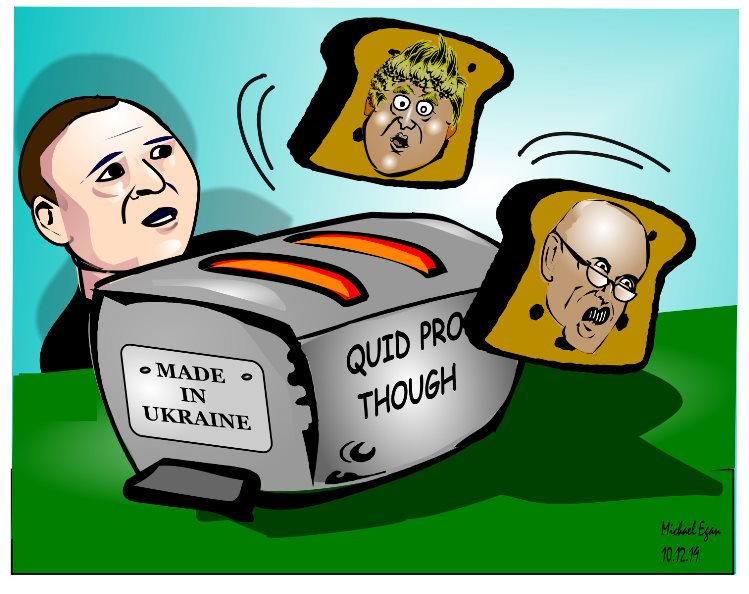

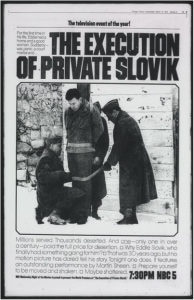
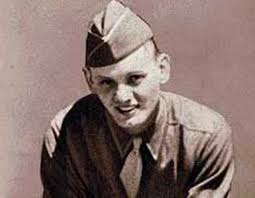

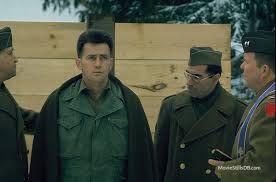

 took the day off.
took the day off.
 In memory.
In memory.

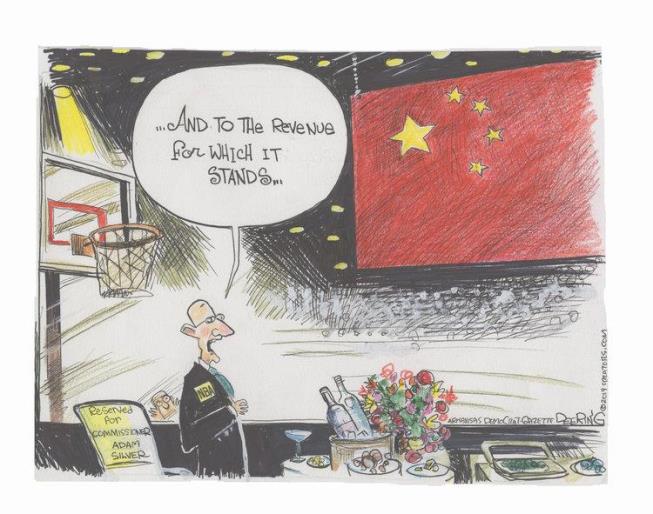
BRUCE'S RECOMMENDATION
BANDCAMP MUSIC
BANDCAMP MUSIC YOU WILL PROBABLY NEVER HEAR ON THE RADIO
Music: "Like a Canyon" from the album LIKE A CANYON
Artist: Megan Bee
Artist Location: Athens, Ohio
Info: "Singer-songwriter Megan Bee writes with an unquenchable wanderlust and a raw love for the land. Her latest studio album Like a Canyon (2017) claims both The Ohio Music Awards 2017 Best Americana and Best Singer-Songwriter Album. With folk-Americana roots, she blends a distinctly homespun voice over an acoustic simplicity."
Some Lyrics:
Color me like a canyon when the sun is hanging low down in the west
Color me like a canyon and let the red and green and blues run down my legs
Color me like a canyon
Color me like a canyon and keep me in your eyes
Price: $1 (USA) for song; $10 (USA) for album
If you are OK with paying for it, you can use PAYPAL or CREDIT CARD
Genre: Folk, Americana, Singer-Songwriter
Megan Bee Music
Megan Bee Bandcamp
David Bruce has over 140 Kindle books on Amazon.com.
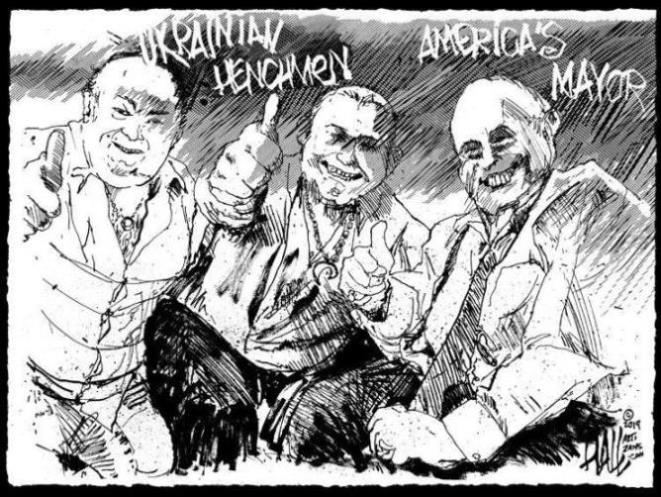
Reader Suggestion
Michelle in AZ



from Bruce
Anecdotes
• Children's book illustrator David Shannon started drawing early, but some of his works of art have not survived. He says, "I drew these great panoramic epic battle scenes around castles, but few of those survived because as each person got killed they got scribbled out, so you [w]ould end up with a whole bunch of scribbles." Mr. Shannon is modest. He illustrated Jane Yolen's The Ballad of the Pirate Queens, about two women who sailed as part of a pirate crew. Fellow children's art illustrator Dilys Evans says about Mr. Shannon's illustrations for this book, "Painted in acrylic, these pictures show David Shannon's admiration for [famous illustrator] N.C. Wyeth, but at the same time they portray his own unmistakable form and palette." Mr. Shannon's reaction to this praise was to laugh and say, "Well, you can tell it's David Shannon because it's not as good as N.C. Wyeth." Ms. Evans adds, "It's this kind of instant humor and gentle humility that gives this illustrator the ability to tackle so many different kinds of stories with genuine enthusiasm."
• As a kid, children's book illustrator/author Patricia Polacco loved Dr. Seuss' Horton Hatches the Egg, which is about an elephant sitting on an egg in a nest on a tiny limb of a tree and hatching it. Young Patricia was impressed that such a large animal as Horton could sit on such a tiny tree limb without breaking it. She says, "Then I started thinking … if Horton can sit on that skinny, little branch, then any elephant can, and that means I can!" She tried it in her grandfather's small cherry tree - and ended up falling to the ground. By the way, young Patricia had an imaginary elephant as a playmate. The elephant's name was Sweet Pea, and at meals Patricia's family always had a chair at the table for Sweet Pea to sit on. Sweet Pea's favorite book was also Horton Hatches the Egg. Today, Patricia says, "As the years have passed, I don't see her as much anymore. I would imagine that she is charming some other youngster with her lumbering and gentle ways. I'll bet they are reading Horton Hatches the Egg together!"
• Children's book illustrator Pat Cummings got in trouble when she was a five-year-old girl growing up in Germany, where her military family was stationed. She saw several German-speaking girls get on a bus in her neighborhood. Although she didn't speak German, she also got on the bus, and when the girls got off the bus, so did she. The girls then attended a dancing class, and young Pat went with them and tried to do what they were doing. At the end of the class, the dance instructor pinned a note on her blouse: "Please don't send her back until she's at least eight." Pat got back on the bus, returned home, and discovered her mother frantically looking for her. Of course, Pat was grounded, but she got a good start on her future career by drawing pictures of ballerinas.
• Even when he was in the 2nd grade, children's book author/illustrator Tomie dePaola knew that he wanted to be an artist when he grew up. One day at school, he was excited because Mrs. Bowers was teaching an art class so that the children could learn to draw valentines decorated with daisies, violets, and roses. Following art came arithmetic. Young Tomie was supposed to copy arithmetic problems from the blackboard and solve them, but he used his paper to draw daisies, violets, and roses instead. Poor Tomie got into trouble when his teacher found out what he was doing even though he explained he was going to be an artist when he grew up and not an "arithmeticker."
• African-American artist Palmer Hayden painted stories in his canvases. In Midnight at the Crossroads (created about 1940), Mr. Hayden shows an African-American boy holding a violin - which is too big for him - at a crossroads. In one direction are a church and no doubt other buildings and places familiar to the boy. However, the boy is looking down the other road, which curves and hides what is to come. Perhaps the boy in the painting is about to choose a road that leads into both the unknown and a future in which he can achieve aesthetically.
***
© Copyright Bruce D. Bruce; All Rights Reserved
***
THE COOLEST PEOPLE IN ART

Bonus Links
Jeannie the Teed-Off Temp

Reader Comment
Current Events

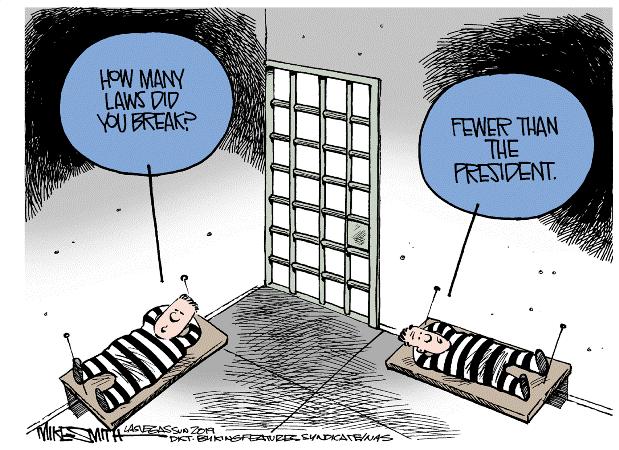
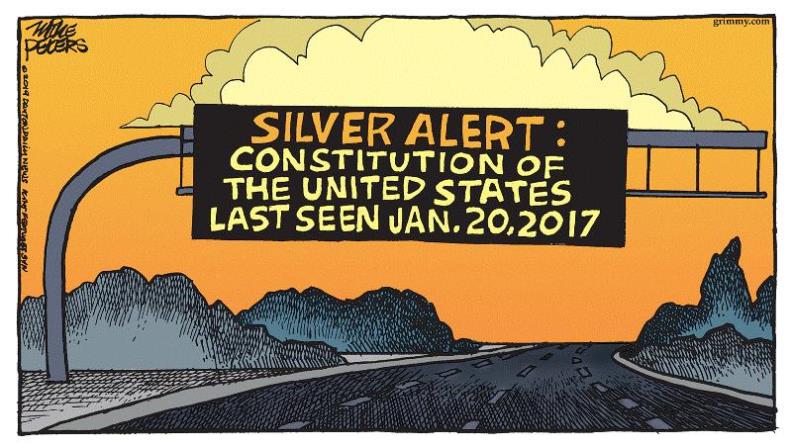

Linda >^..^<
We are all only temporarily able bodied.
Thanks, Linda!

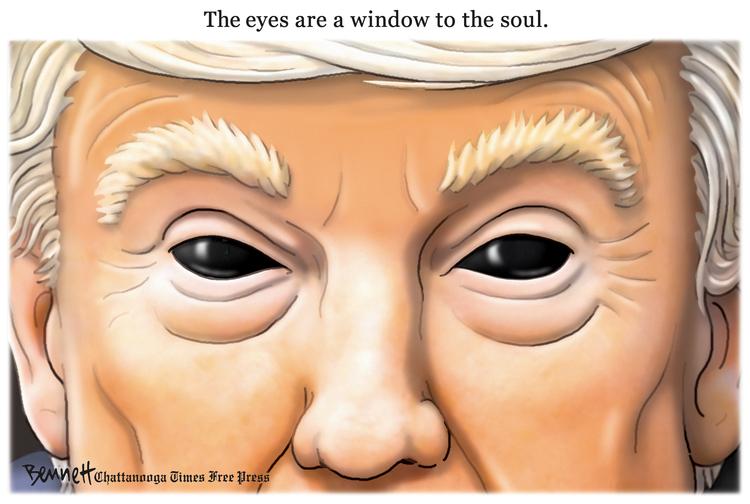

Selected Readings
from that Mad Cat, JD
JD is on vacation.

Visit JD's site - Kitty Litter Music
In The Chaos Household
Last Night
The defective rooster got an early start on the day.

Power of Women Luncheon
Variety
Jennifer Aniston, Ellen DeGeneres, Awkwafina and more stars overcame a dysfunctional teleprompter to toast one another and their charities at a women's luncheon Friday in Beverly Hills.
"I'm fine but Jen (Aniston) is freaking it back there," DeGeneres said as harried staff struggled to fix the broken screens that just a few minutes earlier had Awkwafina nervously winging it ("I can do a little tech support," she offered) before calling someone to just bring up her phone so she could read her speech manually.
The 11th annual Variety Power of Women luncheon honoring Aniston, Awkwafina, Chaka Khan, Mariah Carey, Brie Larson and Disney Television Studios chairman Dana Walden boasted a roster of A-list guests and presenters from DeGeneres, to Natalie Portman and Ryan Murphy who charmed and inspired the well-heeled crowd of entertainers and industry insiders with speeches about their charitable causes and their commitment to empowering women in the industry.
But Carey managed to thrown in a little spice of her own in remembering how she had to learn how to gain control over her career over the men who wanted to dictate what she wore and who she worked with when she was just starting out.
"I want to thank each woman in this room and all the women who have come forward with their truths, their harrowing experiences, and above all their triumphs over the misogynistic society of corporate (expletives) that we deal with every day," she said.
Variety
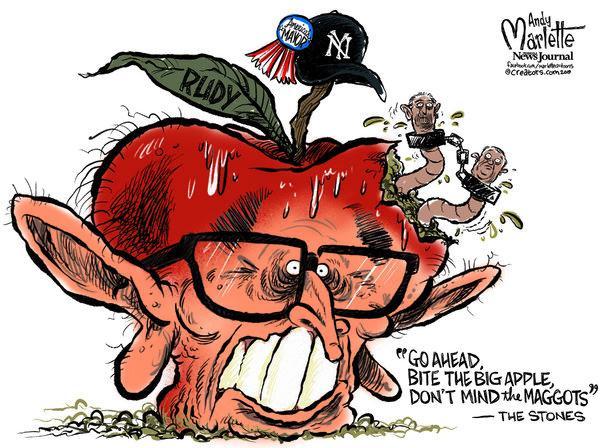
Bonds With Howard Stern
Bill Maher
Acerbic firebrand talk show host Howard Stern rarely visits the West Coast, seldom stays up past 8 p.m., hardly ever agrees to do other talk shows, and barely contains his competitive nature, so it was startling on Friday night to hear Bill Maher (an equally acerbic firebrand talk show host) introducing "the King of All Media, Howard Stern" on Friday to the Los Angeles studio audience for HBO's Real Time with Bill Maher.
Maher himself wore an incredulous expression, no doubt because his rivalry with Stern was for years a sour one, as both of the broadcast veterans candidly acknowledged once the interview got underway. The feud apparently ended when Stern made amends after his years of therapy helped him get past the envy-driven animus he had toward rivals. In April, at Jerry Seinfeld's birthday party, Stern even told a skeptical Maher he would visit his show as a guest. "You're a man of your word," Maher told Stern on Friday night.
Stern and Maher are each New York natives and each was born during the Eisenhower years. Both had fathers who worked in radio, too. So the pair have a lot in common - but so do betta fish. The two professionally provocative conversationalists had some sandpaper opinions to share with each other - Stern hectored bachelor Maher about his disinterest in committed relationships, Maher needled patient Stern about his open-ended devotion to psychotherapy - but that was fairly genial ball-busting (and nothing like the shouting match the last time Maher hosted a hot-button pusher of major renown).
Instead of Molotov cocktails, Maher and Stern mostly lobbed compliments at one another. Stern declared it an absolute injustice that Maher has never won an Emmy for his own on-air work (he did win one as an Executive Producer of Vice) and reflected on Maher's eloquence during his visit to Stern's show. "I thought you were amazing," Stern said, "you really were." Maher asked Stern how he managed to be such a gifted interviewer and then praised Stern's new book, Come Again. "It's terrific," Maher told his guest.
Apparently when two equal and opposite forces meet they simply pat each other on the back. "That's why you and I are the last sane people," Maher told Stern, "because we're liberals but we don't go for all the bullsh*t on the far-left."
Bill Maher
German Banned From China For 'South Park' "Like"
DJ Zedd
Popular DJ and music producer Zedd has been permanently banned from China simply for liking a tweet from the South Park official Twitter account.
South Park has been targeted by China for its recent episode, Band in China, in which it ridiculed the country's censorship and had a major character deliver an epithet as a response.
China has since been particularly pro-active in censoring South Park content on its own search engines and social media. The efforts follow its recent controversy with the National Basketball Assn., which sparked outrage in the country when a Houston Rockets executive expressed support for Hong Kong rebels. Apple also ran afoul of Chinese authorities for an app that showed police locations in Hong Kong. The company has since removed the app from its store.
On Friday, Zedd tweeted his surprise about the China ban. The parameters of his ban are still unclear, and who issued the edict remains unknown. Some of Zedd's music is still available on Chinese media.
DJ Zedd

Guinness World Record
Avocado
A Hawaii family has won a place with the Guinness World Records for the world's heaviest avocado.
The Pokini family from the island of Maui received the Guinness certificate this week for the avocado weighing 5.6 pounds (2.54 kilograms), The Maui News reported Thursday.
The average avocado weighs about 6 ounces (170 grams), according to Guinness officials.
The Pokini family's avocado tree is more than 10 years old and 20 feet (6.1 meters) tall. Mark Pokini planted it when his son was born, using a seed from his brother-in-law's tree on Oahu island, he said.
The prize avocado was put to good use when the family "made a whole bunch of guacamole" to share with relatives and friends, she said.
Avocado
Public Utility Owned By Private Investors
California
When the United States' largest investor-owned utility, Pacific Gas and Electric, shut down power to millions of Californians this week, nearly no one was ready. Not governments. Not businesses. And certainly not the general public.
As parts of the state went dark, the California governor, Gavin Newsom, told reporters he was "outraged because it didn't have to happen".
The wide-scale public safety power shutdown revealed the depth of California's infrastructure problems amid a growing climate crisis, as "de-energizing" policy trades one possible disaster for another.
PG&E may be a public utility - the biggest electric utility in the US - and it may have been shutting off its lines to millions of people in the interest of public safety, but it is not, and has never been, owned by the public.
With their huge monopoly markets and guaranteed rates of return, California utilities are attractive businesses for investors. Earlier this year, utilities asked the state for an even bigger payday. Meanwhile, PG&E invested millions in state lobbying, paid out $4.5bn in profits to shareholders over the last five years, and millions in executive bonuses - all while deferring necessary maintenance and repairs to its system.
California

Advisory Council Recommends Expanding Private Business
National Parks
A Trump administration advisory panel is recommending an ambitious plan to give private businesses greater access to national parks, according to a memorandum written by an advisory council for the Department of the Interior.
Some price increases could also in the works for park visitors under the plan.
Drafters of the plan say it amounts to little more than a much-needed modernization of aging infrastructure, and that the goal is to make national parks accessible to a younger, more diverse audience. Critics, on the other hand, see corporate influence at work.
There are 419 national parks in the United States, from the National Mall in Washington, D.C., to the Gates of the Arctic in Alaska. All are overseen by the National Park Service, which is part of the Interior Department. That department is headed by David Bernhardt, a former Republican operative and corporate lobbyist who has made no secret of his desire to increase the presence of private enterprise in national parks.
The Sept. 24 memorandum, which was written for the Department of the Interior's Subcommittee on Recreation Enhancement Through Reorganization, says the plan should begin as a pilot program "in park units with low levels of visitor services." But eventually that program would be exported to other agencies within the Interior Department that manage public lands, including the Bureau of Land Management and the Fish and Wildlife Service.
National Parks
Stopped Making Sense
The Universe
We're getting something wrong about the universe.
It might be something small: a measurement issue that makes certain stars looks closer or farther away than they are, something astrophysicists could fix with a few tweaks to how they measure distances across space. It might be something big: an error - or series of errors - in cosmology, or our understanding of the universe's origin and evolution. If that's the case, our entire history of space and time may be messed up. But whatever the issue is, it's making key observations of the universe disagree with each other: Measured one way, the universe appears to be expanding at a certain rate; measured another way, the universe appears to be expanding at a different rate. And, as a new paper shows, those discrepancies have gotten larger in recent years, even as the measurements have gotten more precise.
"We think that if our understanding of cosmology is correct, then all of these different measurements should be giving us the same answer," said Katie Mack, a theoretical cosmologist at North Carolina State University (NCSU) and co-author of the new paper.
The two most famous measurements work very differently from one another. The first relies on the Cosmic Microwave Background (CMB): the microwave radiation leftover from the first moments after the Big Bang. Cosmologists have built theoretical models of the entire history of the universe on a CMB foundation - models they're very confident in, and that would require an all-new physics to break. And taken together, Mack said, they produce a reasonably precise number for the Hubble constant, or H0, which governs how fast the universe is currently expanding.
The second measurement uses supernovas and flashing stars in nearby galaxies, known as Cepheids. By gauging how far those galaxies are from our own, and how fast they're moving away from us, astronomers have gotten what they believe is a very precise measurement of the Hubble constant. And that method offers a different H0.
The Universe

Worldwide Shortage
Cassettes
According to an undated letter distributed on Twitter by a small record label in Illinois, the largest audio cassette tape manufacturer in the United States has faced a materials shortage for most of 2019. And the worldwide shortage of gamma ferric oxide has brought tape production to a crawl.
Tape cassettes, once the most common form of portable audio, mostly disappeared from the public's eye after the rise of CDs, the subsequent rise of MP3s, and ultimately the rise of streaming music. While vinyl records account for most of the recent resurgence in physical music sales, cassettes have also seen a spike in recent years. In 2017, the format saw a stunning 136 percent rise in sales, while 2018 saw a more modest, but still noticeable 19 percent increase, according to industry analyst Buzzangle. In concrete numbers, that brought cassette sales up to 118,200 copies sold in the U.S. in 2018.
But the growth spurt for the format has apparently hit a halt. As Pitchfork recently noticed, Hausu Mountain, a small electronic record label based out of Chicago, sent out a tweet alerting other tape manufacturers of the shortage. The tweet includes a letter from the National Audio Company (NAC), which produces the vast majority of cassette tapes in the U.S.
Within the letter, the NAC says the only factory that refines high grade gamma ferric oxide, which is the simplest way to make audio cassettes, is currently undergoing renovations. The letter doesn't mention the name or location of the factory, but when an industry is as niche as cassette tapes, renovations at a single location can be stifling.
Some relief appears to be on the way, as the NAC says it has acquired 11 tons of of gamma ferric oxide. But that's a small dent; the NAC is still waiting on 50 tons of the material.
Cassettes
Shipping Lanes
Lightning
For all the progress humanity has made since Odysseus had a spot of trouble on a long voyage home, life on the high seas remains a largely joyless affair. Twenty-first-century sailors spend weeks away from home. The hours are long, the pay mediocre, the risk of calamity never quite over the horizon. And, researchers have recently learned, these men and women face a problem not even the King of Ithaca had to deal with: unnaturally large amounts of lightning. Turns out that along some of the world's busiest shipping lanes, lightning strikes are twice as common as they are in nearby areas with similar climatic conditions.
As usual in such stories, the blame doesn't fall on a riled up Olympian. It goes to the hubris of humans who, in this case, thought their ships could burn filthy fuel without any judgement raining down.
That's the takeaway from several years of work by researchers at the University of Washington and NASA, starting with a 2017 paper titled "Lightning enhancement over major oceanic shipping lanes." Its authors focused on the northeastern Indian Ocean and the South China Sea, including around Singapore and Indonesia. They picked up the topic when Katrina Virts, a graduate student at the time, created a method to squeeze more resolution out of available data on lightning strikes. She and Joel Thornton, an atmospheric scientist at the University of Washington, used the method and 11 years worth of data on lightning strikes to make a map of areas with especially high strike rates. And they noticed a pattern. "We instantly recognized that these were shipping lanes," says Thornton, the paper's lead author.
This may sound crazy-until you know a little bit about lightning. Under normal conditions, microscopic water droplets in the air grab onto "cloud condensation nuclei," which are aerosol particles bigger than 50 nanometers, like a bit of dust, or sulphur dioxide. When few particles are present, each one picks up more droplets, and they coalesce into relatively short clouds at low altitudes. Those make rain. When a lot of aerosol particles are present, each one gets fewer droplets and can float high enough into the atmosphere to freeze. In the resulting tall clouds, those bits of ice and slush run into each other and transfer electric charges. The differences in charge creates an electric field, which results in lightning.
Lightning

| CURRENT MOON lunar phases |


